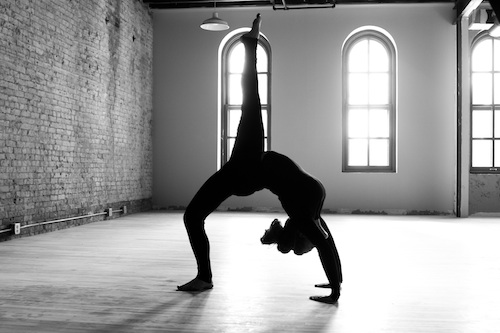“Trauma doesn’t happen as a story. It happens in the body, as sensations,” Zahabiyah Khorakiwala (Zabie) said.
She knows. Seven years ago, she went from studying psychology, Social Behavior and education at UC Irvine to becoming a rape survivor.
Today, she’s a yoga teacher and violence prevention coordinator at the same university. She gives workshops about the realities of rape to students, professors and staff. According to the American Association of University Women (AAUW), one in five undergraduate women can expect an attempted or completed sexual assault while at school.
People think of rapists as scary strangers hiding behind a bush waiting to attack a stranger when in fact that is rare. 90 percent of rapists know the victim and are an acquaintance, date, friend or lover.
“I still hear people talking about what a woman wears or if she’s drinking,” says Zabie, as though clothing choice, beverages or interactions hold survivors partially responsible for being raped.
“I try to make the world a more welcoming place to heal,” Zabie said recalling the pain she felt when she worried she would forever feel unhappy and unlovable. She remembers thinking, “There are only two paths. One was a feeling that this is it. Deep depression. The other path was a choice to be resilient and empowered.”
To move through her trauma, Zabie literally had to move her body.
Talk therapy, which she had tried several times, didn’t help enough. “Most people don’t process trauma cognitively. Google rape symptoms and you’ll find people experience GI distress, insomnia, depression, anxiety and flashbacks,” she said. “Trauma symptoms are registered in the body as sensations.”
With yoga, Zabie found a portable tool she could use at will. “I regained a feeling of control, and groundedness.” Even though, “healing is lifelong,” I can “stabilize my body” and “resource myself,” she said. Having a tool she could use is what made her feel less hopeless and helpless.
When explaining why trauma survivors “can’t just ‘talk about it” Belleruth Naparstek, therapist for three decades and author of Invisible Heroes: Survivors of Trauma and How They Heal, writes “[T]he trauma isn’t even stored in the parts of the brain where language can access it.”
Bessel van der Kolk, head of Boston’s Trauma Center at the Justice Resource Institute said, “Feeling somebody understands your suffering is enormously comforting but it doesn’t make your body know that you are safe. The real method is resetting your physiology.”
Still, despite current research on trauma, few resources besides talk therapy are available to victims of sexual assault. “We do a huge disservice by leaving the body out,” Zabie said.
So many are still suffering from the impact of sexual assault. “Even if you are feeling that you can’t come out of that space, or there’s no light at the end of the tunnel or long hours of therapy aren’t helping you, there is still hope,” Zabie wants people to know.
In her six years of working in sexual and domestic assault prevention and intervention, she has seen nothing as powerful or effective as trauma-sensitive yoga for survivor healing.
Hearing about reduced symptoms of anxiety, depression and insomnia were expected by Zabie. What shocked her though was the life choices and changes people made once they no longer felt disconnected and disembodied.
Some pressed rape charges. Others were able to be intimate with partners. Many were able to better set boundaries. The pro-active feelings of safety, mindfulness and assertiveness were as dramatic as reducing post-traumatic stress (PTS) symptoms.
There is reason for hope even for those with post-traumatic stress unrelenting for years despite medication or therapy.
Naperstek writes, “You can recover from post-traumatic stress. Certainly, you can significantly reduce not just manage its symptoms. But here’s the thing—not with traditional treatment.”
“For a technique to work,” Naparstek says, “it must be taught as a skill and not as a cure for pathology. It must first and foremost find ways to re-regulate the nervous system. It must be simple enough for people to use on their own which confers a sense of mastery and control, and has to de-stigmatize and normalize the experience by explaining PTS (post-traumatic stress) as the somatic and neurophysiologic condition it is.”
For Zabie, yoga is “a gem” which she wants as many people as possible to know is available. To that end, she founded “Transcending Sexual Violence through Yoga” because she believes, “trauma sensitive yoga practice and holistic healing are the future.”
Zabie has days when the trauma seems to rise up through her feet and into her body. When that happens, she stops, closes her door, takes breaths and does poses. “You can’t erase painful experiences,” she says, “But you can turn them into something beautiful.”
Sources:
http://www.whitehouse.gov/sites/default/files/docs/sexual_assault_report_1-21-14.pdf
http://www.aauw.org/what-we-do/legal-resources/know-your-rights-on-campus/campus-sexual-assault/#about
http://www.huffingtonpost.com/belleruth-naparstek/mental-health-note-to-col_b_553096.html
http://www.kripalu.org/article/648/
http://thebreathenetwork.org/zahabiyah-khorakiwala
Love elephant and want to go steady?
Sign up for our (curated) daily and weekly newsletters!
Apprentice Editor: Kimby Maxson/Editor: Travis May
Photo: Wikimedia Commons












Read 9 comments and reply